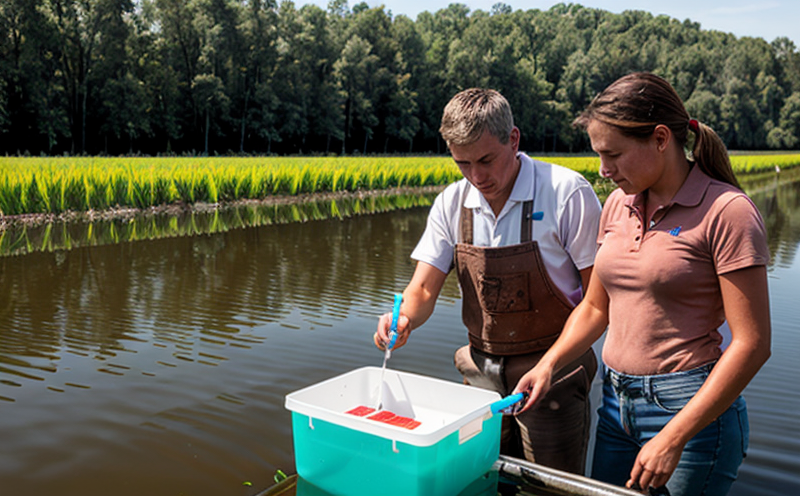Iodine Content Testing in Irrigation Water
Testing iodine content in irrigation water is a critical aspect of ensuring both agricultural productivity and public health. Iodine plays an essential role in the human diet, but its presence at optimal levels in irrigation water is also crucial for soil fertility and plant growth. This service focuses on accurately measuring the concentration of iodine in irrigation water to ensure compliance with international standards such as ISO 6878:2015 and ASTM D4129.
Iodine content testing in irrigation water is particularly important because even minute variations can significantly impact plant health, soil quality, and ultimately food safety. For instance, insufficient iodine levels may lead to stunted growth or reduced crop yield. Conversely, excessive iodine could result in toxicity issues that affect both plants and humans.
The process involves several key steps: sampling of the irrigation water, preparation of a sample for testing, analysis using colorimetric methods or atomic absorption spectrophotometry (AAS), and reporting results against established benchmarks. Our laboratory adheres strictly to these procedures to ensure accurate and reliable outcomes.
Our team of experts uses advanced analytical equipment calibrated specifically for iodine detection. These instruments provide precise readings that help our clients make informed decisions about their irrigation practices. By regularly monitoring iodine levels, agricultural producers can optimize nutrient management strategies leading to healthier crops and sustainable farming operations.
To maintain consistency across all tests, we employ rigorous quality control measures including internal audits, proficiency testing programs aligned with external bodies like ANAS (Spanish Accreditation Organization) or ILAC (International Laboratory Accreditation Cooperation).
Quality and Reliability Assurance:
- We follow stringent protocols established by recognized organizations such as ISO 6878:2015 and ASTM D4129.
- All analyses are conducted under controlled environmental conditions to minimize variability.
- Our methodologies undergo continuous review and improvement through ongoing research and development efforts.
Environmental and Sustainability Contributions:
- By accurately measuring iodine content, we contribute towards sustainable agricultural practices which enhance biodiversity and reduce ecological footprint.
- The accurate measurement supports efficient water usage leading to better resource management and conservation.
Use Cases and Application Examples
| Application | Description |
|---|---|
| Agricultural Research | Assessing the impact of iodine content on different crop varieties. |
| Farm Management | Determining optimal irrigation practices for maximizing yield while minimizing costs. |
| Public Health Monitoring | Evaluating community water sources used in agriculture to ensure safe consumption patterns. |
| Soil Fertility Assessment | Analyzing the relationship between iodine content and soil composition for better management practices. |





